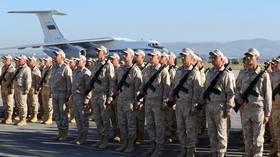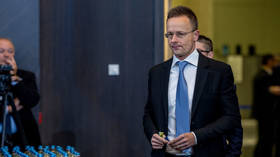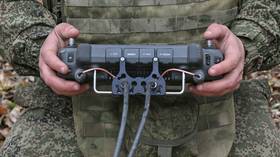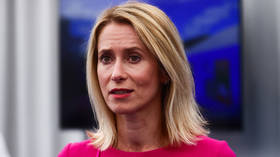Russia begins mass destruction of illegally imported food
Russia has begun destroying embargoed products imported into the country. In the city of Belgorod, a bulldozer was used to crush 10 tons of illegal cheese.
The cheese came from Ukraine, but its origin is not known, says Yulia Melan, a spokeswoman for Russian food watchdog Rosselkhoznadzor, in charge of food destruction. She added that after being crushed, the cheese would be buried in a waste pit.
The same fate awaits 73 tons of peaches and nectarines from Turkey. The cargo was stopped on the Russia-Belarus border on Thursday. It arrived with phytosanitary documents, but Turkish authorities had not actually issued any documents.
"We were suspicious of the peculiar route the products took through Greece, Moldova and Belarus," said the watchdog.
Another illegal cache to be disposed of by incineration is 20 tons of cheese currently in Saint Petersburg. The embargoed goods had entered Russia bearing a label stating “nonhazardous chemicals”.
READ MORE: Putin signs decree on destruction of sanctioned food products on Russian border
On July 29, Russian President Vladimir Putin signed a decree on the destruction of embargoed products illegally imported into Russia. This resulted from the initiative of Agriculture Minister Alexander Tkachev.
READ MORE: Russia drafts bill to add 7 more countries to food embargo list
In June, Moscow extended its embargo on food imports from Western countries that support anti-Russian sanctions until August 5, 2016. This was a reciprocal response to the EU for prolonging sanctions against Russia for six months.
LISTEN MORE:












